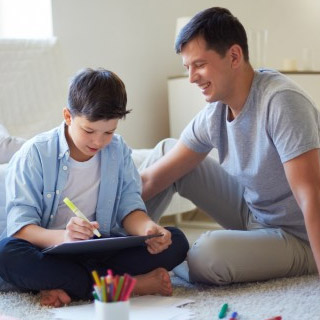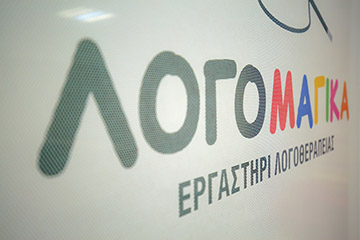Frequently Asked Questions
YOUR QUESTIONS
- HOW LONG DOES A TREATMENT PROGRAM HAVE?
- DO WE NEED TO DO HOMEWORK?
- IS THE PRESENCE OF THE PARENT ALLOWED DURING THE SESSION?
- AT WHAT AGE CAN A CHILD START SPEECH THERAPY SESSIONS?
- SHOULD THE TEACHER BE AWARE THAT THE CHILD IS IN A TREATMENT PROGRAM?

The duration of a treatment program varies depending on the difficulties to be addressed and the degree of each difficulty. It also depends on the “potential” of each child who is part of a treatment program.
The treatment programs are individualized and created based on the needs of each case. Indicatively, the period of one semester or more than one year of therapeutic intervention can be mentioned as an average.
Finally, there are cases of incidents that require parallel involvement of parents outside the hospital with material and directions from the therapist. This engagement when done systematically is an important factor in the development and duration of a treatment program.

In several cases where it is deemed necessary after the end of the sessions, relevant material is given or instructions are given to the parents and with the guidance of the therapist they are performed outside the hospital until the next session.
The parent is trained in the use of therapeutic material and is part of a supportive environment for resolving difficulties that may arise and for any clarifications that may need to be given.
The purpose of this procedure is to familiarize and continuously practice to achieve the goals set by the therapist for each case.

In some cases, the presence of the parent during the session may be considered necessary or even prohibitive. If the parent wishes to be present during the session, he / she can attend it without his / her presence complicating the role of the therapist, intervening without being asked or interrupting the treatment process in any way. There are sessions that take place with the parent and are mainly those that aim at parent-child interaction.
It is also often helpful for a parent to attend the session because they can better understand the child’s difficulties but also learn how to apply the therapist’s directions outside the session.

Speech Therapy is a science that helps develop and enhance skills in each age group depending on the difficulties that arise. A child can join a treatment program even from birth if the difficulties that occur require immediate intervention e.g. eating disorders, prematurity etc. or from the first years of his birth e.g. diagnosis of genetic syndrome, hearing loss, mental retardation, etc.
It is important for the child to develop first and foremost skills that will in turn help him to develop his speech. Non-verbal communication, eye contact, babbling, imitation, pointing, comprehension, execution of simple commands, etc. is within this range of skills. In terms of the sheer purity of a child’s speech and language, and since there are no other factors in the child’s development that will concern the pediatrician, educator or parent, a reasonable time to start a treatment program is the age of 3, 5 – 4 years old. Even in this, an important factor is the beginning of the speech, ie “when did the child start talking?”. In general, parents should think that it would be good for children of normal development to have the appropriate clarity in their speech and speech before attending primary school, where then the learning of writing and reading begins.
In any case, as soon as a parent realizes a difficulty of the child or is informed about something similar by his doctor / teacher, it is recommended to contact or visit a speech therapist in order to evaluate the child. After the evaluation, the therapist informs the parents if it is deemed necessary and to what extent it is necessary to start a treatment program.

The teacher should be informed either by the parent or by the therapist that the child is attending a treatment program, the difficulties presented by the child and the therapeutic goals of the program. In this way he will perceive and focus on the child’s difficulties, will help the child to respond more effectively to the requirements of the school context and as a key and objective observer will help to evaluate and deal with the difficulties presented by the child.
The cooperation of the family, the teacher and the therapist brings the best results in a treatment program but also many benefits to the child himself.




